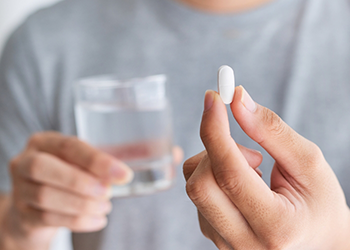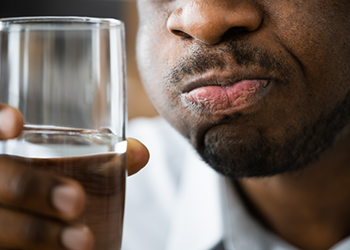Post-Op Dental Instructions Londonderry
Helping You Recover Swiftly & Successfully
It is important to follow instructions after you have oral surgery to ensure proper healing and to avoid complications. As a rule of thumb, you should always wait two hours after surgery before eating to let the anesthesia wear off. Trying to eat before this could result in soft tissue damage because you are not able to feel all of your mouth. The instructions found below are guidelines for various dental services that we offer at Miles of Smiles. After your surgery, the doctor or dental assistant will give you full instructions on how to properly recover from surgery.
Root Canal Treatment

You can expect soreness after a root canal procedure for a few days. You should avoid chewing on the side of your mouth where the procedure was performed so you do not irritate the area and also ensure that the temporary restorative material properly sets. You will also need to take an antibiotic to treat any remaining infection in your tooth. If you notice an increasing amount of pain or tenderness, a reaction to the medication, or the loss of the temporary restoration (filling) call our dentist immediately.
Dental Crowns and Bridges

Before you receive your permanent crown/bridge you will first receive a temporary restoration. This is not as sturdy as the permanent version, so you should be careful when cleaning and eating. You should brush the area gently and should not pull up on the tooth when flossing because it could become dislodged. The same goes for eating. You should avoid sticky or chewy foods while you have the temporary in.
There may be some sensitivity and irritation after the temporary or permanent is placed. This is normal and will subside after the soft tissue heals. A warm salt water rinse will help, and you can also take Advil or Tylenol if the pain does not go away.
When the permanent crown or bridge is placed it may feel a little awkward for a few days. Your mouth needs to adjust to the new tooth, and it should feel like one of your natural teeth in less than a week. If your bite feels abnormal in any way, you should let us know. Caring for your bridge or crown is just like caring for your own teeth. You should brush and floss regularly.
White Fillings (Bonding)

After the anesthesia wears off your teeth will likely be sensitive. You should avoid hot and cold food or drink for the next few days. After that initial period, your treated teeth will feel as good as new. Continue your normal hygiene plan to ensure that your fillings last for a long time.
Scaling and Root Planing

After this procedure, your gums will probably be slightly sore and irritated for a few days. You should rinse your mouth with warm salt water (1 tsp salt/8 oz water) 2-3 times a day. This will relieve the pain and cleanse the area. Brushing and flossing should be continued right after the procedure, but you should brush gently so that you do not further irritate the area. If you experience any swelling or stiffness, place a cold compress on the area and take some pain relieving medicine. Avoid any hard or chewy foods for 2-3 days after the surgery to ensure the area heals correctly. If you continue to experience pain or swelling after a few days, contact our team.
Veneers

While wearing your temporary veneer, you’ll need to make sure that you are mindful of what you eat and how you clean your teeth. Flossing improperly can cause it to lift off your tooth (the same can be said when your permanent veeners are put in place).
After receiving your final veneers, you’ll likely need some time to adjust, as your mouth will be unfamiliar with these new additions. If you experience any soreness, you can take an over-the-counter pain reliever to minimize discomfort. If you notice that it is not getting better after a short time, don’t hesitate to call our office.
Tooth Extractions

When undergoing a tooth extraction, you’ll need to make sure that you get plenty of rest after your appointment. A family member or friend will need to escort you home, as the anesthesia will take time to wear off.
It’s normal for your extraction site to bleed a little, so make sure that you change out the gauze regularly. Bleeding should not extend beyond 24 hours, so if it does, make sure to call our office. When resting, make sure to prop up your head, and take any prescribed medication to help stave off severe discomfort. You can also use a cold compress to minimize the pain and reduce swelling.
In the days following your procedure, you’ll need to stick to a soft food diet so that your chewing is minimized. This will allow your extraction sites to heal thoroughly. However, make sure you don’t use a straw, as this can dislodge one or more of your blood clots and cause a dry socket to form. You’ll also need to avoid smoking.
If you notice the pain, bleeding, or swelling does not go down, call us to schedule an appointment.

